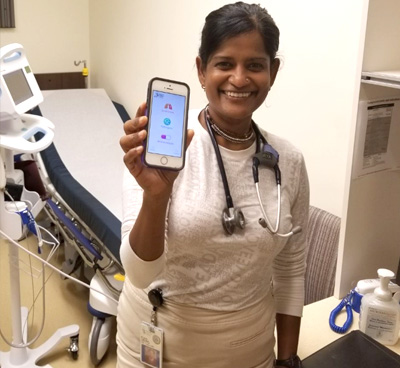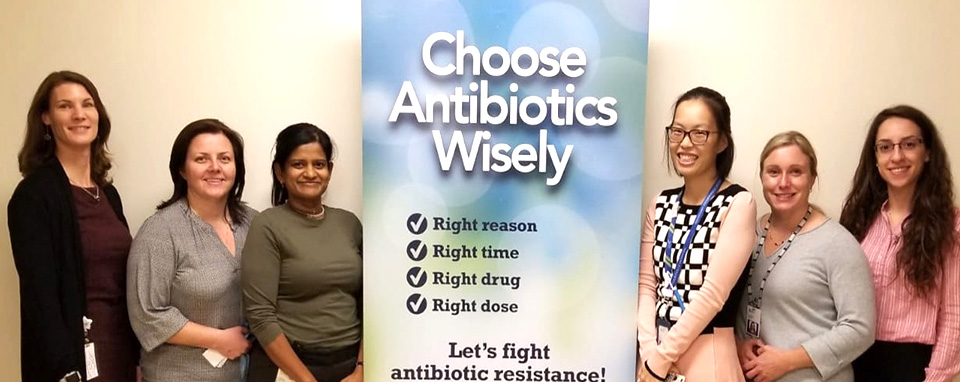When one becomes ill with a bacterial infection, we depend on the effectiveness of antibiotics to heal us. But what happens when the bacteria causing your illness become antibiotic-resistant – meaning the medication being used to fight the bacteria will no longer work?
Serious bacteria that exist in our environment such as C. difficile, and Pseudomonas aeruginosa can be deadly for people who are in the hospital and especially for those who have a weakened immune system. These bacteria are able to rapidly change in response to antibiotics so when they are over prescribed, they become less effective in fighting the bacteria.
This is why Markham Stouffville Hospital (MSH) has a robust Antimicrobial Stewardship Program (ASP) which ensures antibiotics are used appropriately and thus stay effective against bacteria for our patients for years to come.

Over the last several years, the MSH team has built a sophisticated ASP that continues to grow in scope and impact far beyond basic requirements. The MSH ASP team actively participates in various national and international inter-disciplinary networks in an effort to establish collaboration on the use of antibiotics and research on antibiotic resistance.
Amongst its many accomplishments, MSH recently launched a mobile app, Spectrum®, which provides up-to-date MSH-tailored guidelines and resources used by physicians at the bedside to ensure the highest level of care and safety for our patients. MSH is the first community hospital in Ontario to design and launch an app of this kind.
The ASP team is comprised of pharmacists and ID physicians who work closely with front-line staff across the hospital monitoring patients on antibiotics to ensure they are receiving the most appropriate treatment. The team also engages with patients and families to take an active role in discussing the appropriate use of antibiotics. Patients and family members are encouraged to speak with their care team and ask about the use of antibiotics for their loved ones.
“As patient and community members, you also have a role in understanding and asking questions about your medical care, which includes being stewards of antibiotic usage.” says Dr. Jeya Nadarajah, MSH Infectious Diseases physician lead for the ASP.
In this era of increasing antibiotic resistance, a significant accomplishment for the ASP team was to increase the effectiveness an antibiotic to treat Pseudomonas aeruginosa from 84 per cent in 2014 back up to 100 per cent. This means that we are able to have more treatment options for this deadly bacteria and keep our patients safe.
Rising antibiotic resistance is one of the biggest crises facing modern medicine. It affects every person in our hospital, in our community and around the world. Do your part to keep yourself and loved ones safe by talking to your care provider about the use of antibiotics.
